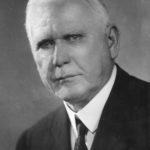Description
HEAVEN
Our Father’s House
Our Heavenly Home
God’s City of Gold
by
W.G. HESLOP
D.D., LITT. S.D.
Author of
Gems from Genesis, Extras from Exodus, Riches from Revelation, Diamonds from Daniel.
2016
Contents
INTRODUCTION 3
I. THE QUESTION OF QUESTIONS 8
II. ANGELS 15
III. BETWEEN DEATH AND BURIAL. WHAT? 23
IV. AFTER DEATH AND BURIAL. WHAT? 30
V. WHERE ARE THE DEAD? WHAT ARE THEY DOING? 39
VI. KEYS TO THE FUTURE 50
VII. GOOD MORNING 56
VIII. RESURRECTION AND RECOGNITION 63
IX. HEAVEN. WHAT? WHERE? WHEN? HOW? WHY? 69
X. HEAVEN (CONTINUED) 77
XI. HEAVEN (CONTINUED) 82
XII. HEAVEN IS TO BE OUR HOME 87
INTRODUCTION
All Christians are interested in heaven the future abode of God’s children. In fact people who may not enjoy a vital Christian life through a definite relationship with Christ manifest an unusual interest in this subject. The most popular gospel songs are those which tell of Jesus and heaven. Close to the favorite, “The Old Rugged Cross,’’ are such songs as “No Disappointment in Heaven,” “The Sweet Bye and Bye,” “When the Roll Is Called Up Yonder” and those of a similar nature.
The questions most frequently asked in a public question box are those about the future life. “Where are the dead?” “Are they in a conscious state of existence?” “After death will we know them?” “Will we be able to converse with them?” “What change will the resurrection make in the present state of the dead?” All of these indicate that people are unusually interested in the future life.
This book has been written to give light on the subject of heaven and to answer many of these questions concerning the future life. Doctor Heslop, the author, has for years been an ardent Bible student. He has had a long experience as a Bible teacher, all of which has given him a wide grasp of the scriptural teaching on this subject. He brings an array of scriptural statements to substantiate his teachings.
The reading of this book will bring comfort to those whose loved ones have departed to be with the Lord; it will inspire those who may be disheartened to continue the good fight of faith; it will encourage those who may have a tendency to discouragement because of the conditions existing in this present wicked world; it will brighten the hope of all who are followers of Christ and who are walking toward that city of gold; it will help us to be patient while we pass our pilgrimage here looking “for that city which hath foundations whose builder and maker is God.”
- Shelby Corlett.
Where are the dead?
What are they doing?
Shall we see them again?
Shall we know them?
Will they know us?
Is death an eternal sleep?
Do we survive the chemical change called death? Does man lie down on the couch of his everlasting sleep?
After death. What? How? Where?
Between death and burial. What?
Between burial and resurrection. What? During the Millennium. What?
After the Millennium. What?
The ages to come. What?
HEAVEN
What?
When?
Where?
How?
Why?
Paul felt in the depths of his soul that the life of the Christian, as it subsists in faith now, can only subsist in hope of the future. Without this assumed view of the future, the whole Christian life appears in his eyes as endeavors without an object, the pursuit of a phantom, the sport of a delusion. For the life of other men is directed to the higher or lower aims which are to be attained in intellectual pursuits, or in the gratification of the senses and which can be actually attained on earth. But the life of Christians, with all its conflicts, efforts, and renunciations, refers to an object that has no truth, if it be not realized in the eternal life of the future. – Neander.
I. THE QUESTION OF QUESTIONS
“If a man die shall he live again?” is one of the burning questions of the day. It trembles on a thousand quivering lips and springs into a million bleeding hearts.
To every home death comes and to every one it is appointed once to die. After death! What? Extinction? Destruction? Annihilation? An endless sleep? What is there after death?
“If a man die shall he live again?”
Not only do our deepest instincts and noblest aspirations cry out for continued existence and long life – not only is it a fact that the best and longest earthly life is imperfect and incomplete, – not only does our sense of justice and right demand a future state, – not only is the universal conviction of the conscience of the race in favor of a life beyond the tomb, – but the revelation of God which we call the Bible assures us in no ambiguous or uncertain terms that – man may die, but that he shall also rise from the dead. So much is certainly settled.
Out of the welter of wishful hopes, out of the sphere of strong forebodings, out of the perennial reasonings, peradventures and probabilities, the Word of God transports us to a world of fact, assurance and certainty.
Death, to the Christian is but a lift to a larger life. Death to the believer in Jesus Christ, is but the doorway to a house not made with hands.
Death, to the faithful follower of the lowly Nazarene is but the vestibule to an eternal home in the heaven of heavens.
Death, to the Christian is simply the ending of his happy but weary march to His Father’s White House.
The believer’s death day is really his best birthday – the time of his greatest triumph.
Of all the happy days, the death day will be the happiest of all. The day of his birth, – the day of his coming of age, – the day of his conversion, – the day of his entire sanctification, – the day of his marriage, – the day of honor, – and all other days are as nothing compared to the delightful death day which shall usher him into His Father’s House on High.
The writer shall gladly exchange this body, with its headaches and temple throbbings and heart pains and weaknesses too numerous to mention, for an incorruptible body that shall never know ache or accident, pain or punishment, decay or death, and for a glimpse of the glorious jasper gates which shall mean entrance into the presence of God and the eternal friendship of Jesus and all the saints.
Death is only the rude hand that snaps the fetters and emancipates the soul.
Death is only the bridal peal calling the sanctified soul to its everlasting espousals.
Death is the door opener into a city without sin, sorrow or suffering, a sunrise without a sunset. Toil and trouble, trial and temptation shall be only a memory. O Death, where is thy sting? O grave, where is thy victory? Cease your talk of the blighting of early promise and the premature death of the young and beautiful. They need none of your pity. Pity the living, be kindly affectionate to those who must stay and fight the good fight of faith, but do not pity the righteous dead, for they are hilariously happy and blessed for ever.
Pity the caterpillar if you please, but not the beautiful butterfly.
Pity the ugly bulb that must rot in the earth, but not the lily that adorns the pulpit on Easter Sunday morning. The butterfly and lily are symbols of the saints who have died in the Lord. To the Christian, death is the stiller of strife and the calmer of care.
Death does not rob the pure of anything worth possessing. Death is not an eternal sleep to the saints who die in the Lord. Death is no longer the King of Terrors to the loving follower of the Lamb.
Like the evening hour of rest to the exhausted laborer – the believer passes from pain to Paradise.
Think of it what you please but this humble scribe feels and knows his kinship with the skies. This world even now fails to bind his sold, and submerge his spirit. Burning worlds swinging in their bright orbits throw up no barriers against the swift feet of his soul’s soaring imagination.
Beyond the limits of all creation he sends his love and thoughts, and, grasps divinity. His body may wax old as doth a garment but he feels even now bigger than his frail body. He knows that he is more than acids and phosphates, flesh and bone. He lifts his weary head and sometimes heavy heart to the Father God whose hand “guideth Arcturus with his sons.” His redeemed soul scales the highest hills and lays hold of the living God “who bindeth the sweet influences of the Pleiades.” He is happy to be privileged to spend and be spent in the exhilarating service of Him who “looseth the bands of Orion” and he knows that the same guiding, binding, loosing Hand is the hand of his heavenly Father.
Break away from God the Heavenly Father if you please, and, by so doing plunge yourself into the blackness of darkness and the horrors of chaotic night, but as for this scribe he chooses to serve God, live grandly, die happily and spend eternity in his heavenly Father’s home. The soul within him feels his wings, begging to be borne and almost impatient for the skies. He has hopes that refuse to be bounded by the tomb. He has desires and longings which grasp eternity, immortality, and God.
Oh, weep not for the dead!
Rather, oh! rather give the tear
To those that darkly linger here,
When all besides are fled.
Weep for the spirit withering
In its cold, cheerless sorrowing;
Weep for the young and lovely one,
That ruin darkly revels on;
But never be a tear-drop shed
For them, the pure enfranchised dead.
Oh, mourn not for the dead, in youth who passed away,
Ere peace and joy and bliss have fled, and sin has brought decay.
Better in youth to die, life being fair and bright,
Than when the soul has lost its truth, in age and sorrow’s night
Then shed not the tear of grief upon the sable bier,
Her wearied spirit finds a rest, in a more blissful sphere.
I rejoice in the glory to be revealed, for it is no uncertain glory we look for. Our hope is not hung upon such an untwisted thread as I imagine so, or it is likely, but the cable of the strong tow of our fastened anchor is the oath and promise of Him who is eternal verity. Our salvation is fastened with God’s own hand, with Christ’s own strength, to the strong strap of God’s unchangeable nature.
Let us be ballasted with grace that we be not blown over and that we stagger not. I never believed till now that there was so much to be found in Christ on this side of death and heaven. How sweet, how sweet is our investment! – SAMUEL RUTHERFORD.





Reviews
There are no reviews yet.